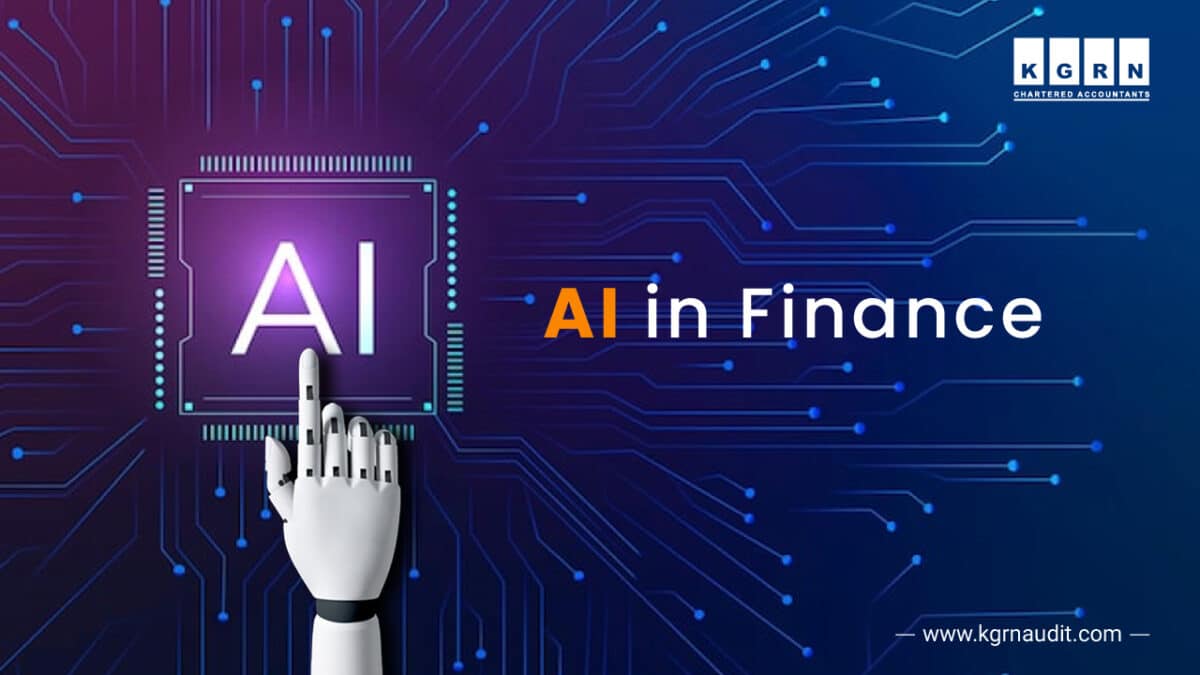From data analysis to decision making, AI is revolutionizing the accounting and finance industry. As we investigate the dynamics of accounting and finance, the practical implementation of AI technology presents impressive growth in enterprises by increasing efficiency and accuracy. Embracing AI in finance and accounting lay the foundation for smarter decision making and strategic developments.
How AI is leveraging Accounting and Finance
Companies that adopt digitalization by integrating AI into their process have a significant advantage as they can leverage AI to all aspects of accounting and financial processing.
Here are the few aspects that AI
Predictive Analytics:
Predictive Analytics helps accounting and finance professionals to forecast future outcomes precisely and achieve a competitive advantage across certain areas. Enterprises leverage predictive analytics tools to analyze large chunks of data to identify trends & patterns and make predictions about future events.
To manage risks, forecast cash flows, and make investment decisions, enterprises use predictive analytics to identify patterns and trends in historical data.
For instance: Accounting departments use predictive analytics in accounts receivable management, to identify credit risk, payment patterns of customers and payment default chances.
Generative AI in Auditing:
Generative AI is generally used to extract new content from the existing information and is now transforming auditing and financial reporting. Its ability to analyse unstructured data including emails and contracts, identify potential risks and compliance issues.
Transfer of large volumes of financial data without affecting the quality is the major challenge in the industry. AI-powered audit tools made it possible by extracting, summarizing and processing the key information from financial documents such as annual reports, financial statements etc, that results in efficient auditing and decision-making.
Fraud Detection and Financial Analysis
By leveraging AI tools, auditors will be empowered with fraud detection capabilities with the applicability of intricate algorithms and reliable big data analysis for comprehensive insights. The adoption of AI in auditing nurtures unsurpassed precision and transparency in audit procedures, assuring effective data management and strict compliance within the finance industry. Moreover, AI sustainably enhances business models and financial planning, enabling data-driven decision-making.
Invoice Processing and Reconciliation
For the Accounting firms, AI helps boosts their performance by streamlining workflows, improving accuracy and enhancing productivity in bookkeeping and other accounting tasks.
The invoice processing can be automated which reduces the time and effort needed for data processing and analysis, as well as optimize cash flow management in receivables and procurement. Adoption of AI for invoice processing and reconciliation enables firms to provide a customer-centric solution for the future of finance.
The challenges in the AI adoption in Finance
While AI provides significant benefits to the finance industry, it also carries certain challenges and risk which needs to be closely monitored. Let’s explore some of the key challenges in the adoption of AI.
-
Embedded Algorithmic Bias
Algorithmic bias happens if AI is trained with biased data or if developers unintentionally integrate their own biases. This may lead to lack of equal opportunities for certain groups, hinder the opportunity to provide equal services to all the clients and the financial services organizations may get exposed to the risk of violating regulations.
-
Complexity
AI models are extremely complicated making it difficult to understand how the results are generated. The absence of interpretability can raise concerns regarding transparency, compliance issues, accountability etc.
Accounting and auditing firms must focus on developing AI systems with transparency and can provide proven results. This will eventually build more confidence among clients, regulators and other stakeholders.
-
Data Privacy
When it comes to operating with financial data, it is extremely important to consider data privacy. Ethical considerations and stringent compliance measures are key elements to ensure the financial AI applications adhere to highest standards of data protection regulations while maintaining the privacy and integrity of customer data while operating financial information.
-
Cybersecurity Risks
The increased adoption of AI in the financial sector demands the need to implement methods to prevent and identify cybersecurity risks. Vulnerabilities in AI algorithms or systems may pave the way for hacking where hackers can gain unauthorized access to financial data or mishandle financial processes.
-
Financial Stability
AI adoption can also impact financial stability. It is possible that AI algorithms magnify market dynamics, resulting in escalated market instability or system risks.
To mitigate harmful effects, regulators need to pay close attention to the possible consequences of implementation of AI on financial stability and development suitable risk-mitigation frameworks.
-
High Development Costs
The cost of development and implementation of AI solutions in the finance sector is generally high, which brings significant hurdles in integration and innovation. To reduce these financial burdens, it is crucial for financial service organizations to opt for collaborative development environments and make use of open-source frameworks.
These methods help to reduce expenses and manage development costs, making the implementation of advanced AI technologies easily accessible and endurable for financial companies that aim to innovate and stay ahead in the competitive market.
The Future of AI In the Industry of Finance
AI adoption in finance drives efficiency and increases profitability by streamlining operations, automating routine tasks, and enhancing decision-making methods.
With ongoing advancements in AI technologies, the financial industry is undergoing a dramatic shift, revolutionizing how organisations operate, deliver solutions and engage with clients. Through this, it is evident that AI is reshaping the financial industry more rapidly than any other industries and will continue for years to come.
Recent Updates







